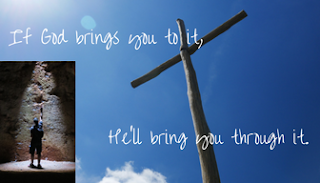To all you mom friends who are fortunate enough to stay home during the day with your children, I want to give you a SHOUT-OUT for all your hard work! But this specific post is for my Working-Outside-The-Home moms who are trying to balance a career and motherhood...
 |
| God knew what kind of mom you'd be, and still chose to specifically place your children in YOUR care. |
I recently had a conversation with one of my teacher friends
about how her first year of teaching is going. Like most educators (or even
working moms for that matter), she felt overwhelmed by everything her new
career entails. That wasn’t what troubled her the most... She's
struggling with Mom Guilt.
Mom Guilt – when you don’t get to spend as much QUANTITY
time with your kid. And even when you try to make up for it, the time isn’t
always as QUALITY as you had hoped.
If there’s one common thread that binds all us moms
together, it’s MOM GUILT.
We like to describe ourselves as nourishing, caring individuals
who put our family’s needs above our own. And on most occasions, that
description is quite accurate.
But then there are those times….
Those times when we have to stay a little later at work
because something came up.
Those times we try to not to mentally and physically take work
home so we can separate home and work life.
Those times we struggle to live in the moment because our
mind races with a thousand things we need to get done.
Those times when we look at our overcrowded schedules,
wondering how we’re going to fit in one more appointment, time for friends and
family, and still have energy to be a rock star at work.
Those times we look into the bright eyes of the little humans we’re raising and think, “I need just 5 minutes of “me” time away from you.
Those times when we hide in the dark bedroom closet stuffing
our face with potato chips in hopes that the kids will work their problems out
on their own and fend for themselves for ten minutes. (Hypothetically speaking
of course. 😏😉)
The point is that MOM GUILT is everywhere and affects every
mother I know.
Like my dear friend, I too struggle with it.
I’d love to be able to give my boys hours of undivided
attention playing in the backyard, followed by a bath and bedtime story each evening when I get home from work. But in reality, between speech therapy and OT sessions, piano lessons, and church events, I know that won’t
happen.
Do I feel guilty about it?
Of course I do.
But over time, I’ve come to
realize not to be so hard on myself with these things.
For all you moms out there who feel like you’re inadequately
raising your child, I’m here to tell you that you’re not.
You are ROCKING
parenthood!
Your kids are clothed, fed, and loved. Their physical and emotional
needs ARE being met, even if it’s not in the way you always envision. They know
that you have their backs and will be there for them always. You’re showing them an example of a strong woman - one who
supports her family and engages in selfless acts of kindness daily by spending what quality time with them you can even though you're exhausted.
This is
enough.
YOU ARE ENOUGH…As a Child of God, spouse, friend, professional, citizen, and most importantly, as a mom.
YOU ARE A ROCK STAR MOM!🎸
I know that mom guilt won’t ever completely go away, but my
prayer for you is that it’ll subside as you realize that your children are
blessed to have you as a mom. After all, God specifically placed your children
in your household, even though He knew the inner MOM GUILT struggles you’d
have.
Thus, YOU ARE ENOUGH!!!!!!!!!!!!!!!!























